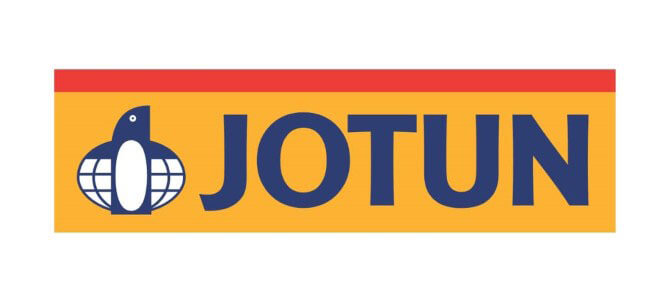What is Enterprise Resource Planning (ERP)?
Enterprise Resource Planning (ERP) software is used to manage the day-to-day business of a company. It helps manage things like accounting, human resources (HR), procurement, customer relationships (CRM), supply chain, manufacturing, engineering, maintenance, projects, service and more.
An ERP solution integrates the above functions into one central piece of software, ensuring the business is operating as efficiently as possible and providing the organization with a single source of the truth for better decision-making. In short, ERP software is a suite of applications that encompasses the value stream of an organization in a single environment.
Everything you need to know about ERP, from definitions and benefits to deployment and selection
What is an ERP system?
A precursor to ERP systems, materials requirements planning (MRP), had its origins in the Toyota Production System, which placed a premium on real-time communication of demand signals to minimize the so called takt time—or the time required for production to match demand. MRP was, as the name implied, primarily focused on inventory—ensuring it was available for consumption as needed while minimizing the amount of capital tied up in inventory at a given time. ERP software arose from MRP, extending this centralized approach to process flow management into new parts of the business like finance, HR and procurement.
ERP designed for modern manufacturing will still include an MRP module, which should facilitate the production schedule and the processes and materials that support it. ERP used in other industries may include additional functionality:
- ERP for construction or engineer-to-order manufacturing or industrial machinery manufacturing may have robust project management capabilities
- ERP for service businesses may also include field service management and schedule optimization
- ERP for asset-intensive businesses — for example, those that handle large or complex pieces of equipment like offshore drilling rigs or hydroelectric power plants — will require maintenance capabilities and, if robust enough, may be considered true enterprise asset management software (EAM)
- ERP for aerospace and defense should be able to facilitate government requirements like earned value management (EVM) project reporting, maintenance repair and overhaul (MRO) and airframe maintenance
What are the benefits of ERP software?
The benefits an ERP system can bring will depend on multiple factors, including the industry and business model. Initially, MRP systems were designed to speed production while reducing inventory. Among manufacturing companies, limiting cash tied up in inventory while speeding time to delivery and increasing order fill rates are frequently reported benefits of ERP. Inventory is just one resource ERP products touch though. As demand signals for human capital also travel from the sales forecast through to booked business, HR teams can hire and ensure enough people are available and adequately trained or certified to perform the work that is required.
Regulatory compliance, well beyond the segregation of duties required by SarbOx, is another major benefit. ERP systems provide traceability that can help inspectors as data on equipment performance, business processes, certification of workers performing regulated tasks, and more are centralized.
Visibility into the business is useful not just to executives managing the enterprise, but also to clients. Customers want a window into processes related to their order or their projects or even after purchase of a discrete item, its provenance — where it came from, who touched it, when and where it was made — for business reasons like expiration or country of origin requirements or to support consumer buying preference.
ERP makes work more effective and efficient. Optimized business processes, reduced administrative work, elimination of duplication and, increasingly, automation can enable a company to use ERP systems to increase productivity by as much as 18 percent according to IDC.
ERP software powers business automation. By running an ERP solution, you will be able to pick and choose between different approaches to automation, including IoT-connected equipment, embedded AI features or algorithms, or event triggers that cause one type of transaction to trigger another. One example of the latter is automatically notifying the waiting customer when a part comes into inventory.
One whitepaper from IDC suggested implementing a modern ERP system can, by itself, increase productivity by 18 percent.
Where to implement ERP software: in the cloud or on-premises?
As a general rule, most businesses will benefit more from running their ERP solution in the cloud than on premises. In fact, industry analyst firm IDC predicts that cloud computing spending will grow at more than six times the rate of IT spending through 2020. IDC also predicts that by the end of 2020, 67 percent of enterprise infrastructure and software offerings will be cloud-based. The growth of cloud-based ERP isn’t surprising when you consider the benefits of the cloud as compared to traditional on-premises installations:
- Quicker and easier to scale to accommodate business growth
- Lower costs and less complexity with no hardware to install, update and maintain
- Easier access to the latest product updates and innovations
- Better and much faster disaster recovery abilities when your data is being monitored and backed up by a professional hosting company
Whereas security and legal compliance were once seen as reasons not to go to the cloud, today’s cloud hosting environments are able to support key requirements such as the General Data Protection Regulation (GDPR) and the ISO27001 certification for data security management. Security is also less of a concern since most IT decision-makers have come to realize that something like a Microsoft Azure data center is orders of magnitudes more secure than their own on-premises server room.
One of the most important considerations when it comes to ERP deployment is to look for a software vendor who offer choice, parity and freedom of movement.
You should be given the choice whether to run ERP Solutions in the cloud or on-premise. You should also be able to choose whether you want an all-inclusive, Opex-only SaaS service, or whether you want to own a license for the application. The right ERP vendor will also offer choice by not limiting you to its own cloud offering but allow you or a partner of your choice to operate the ERP solution in the cloud or host them in a more traditional way.
Look for a vendor that guarantees parity in that the solution you get in the cloud is not reduced in capability compared to the same application on-premises. Make sure new functionality and innovations are made available at the same rate regardless of where you choose to deploy the solution.
Demanding freedom of movement is important as it will let your company go from on-premises to the cloud and vice-versa as your business evolves and your needs change.
How to evaluate and choose ERP software?
Selecting ERP software requires a rigorous and disciplined process to first identify the functional requirements of the business not only now, but well into the future. The project requires an executive sponsor to ensure the funding is reliably available and that the process changes and improvements the ERP implementation will deliver are adopted by end-users throughout the business.
Once the project has received the support of senior management, and a list of functional requirements has been established, a committee or individual in the company is usually charged with identifying a short list of ERP vendors and products that can meet their needs.
Because most business professionals will be part of one to three ERP selection processes over their career, many companies choose to hire a third-party, objective consultant to guide them through the process.
These consulting firms should be unaffiliated with any ERP vendor and can therefore focus on helping their client create detailed demo scripts so software vendors can illustrate how their product will meet specific needs. The consultant should also be able to help their client identify trends that will cause these needs to change over the lifecycle of that ERP product, which can be 10 years or more.
The software vendor should therefore be prompted to demonstrate how their current ERP software will evolve to meet future needs and how their roadmap for future development will dovetail with technologies important several years out.
How IFS ERP is helping businesses succeed
IFS is a different kind of ERP software. It is not complex and rigid like some other ERP suites. Instead, it is designed to help you rapidly take advantage of emerging technology and the changing market landscape, maximizing the agility of your business.
But don’t just take our word for it. Check out what our customers say:
- Global paint manufacturer Jotun realizes growth and maximizes manufacturing efficiency with its IFS ERP solution
- Aviation services provider Revima chose IFS to help drive its international expansion and support its complex maintenance operations
- Oil and Gas contractor Apply increases efficiency with IFS
- Leading engineering company Babcock deliver over 4,600 projects with the help of IFS
- Global pest control service provider Anticimex integrates its IFS ERP solution with IoT to deliver outstanding customer service







